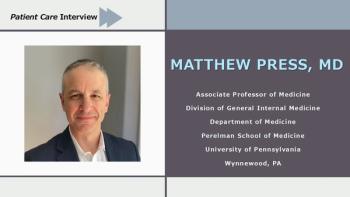
5 Pharmacy Services to Improve Medication Adherence
Ensuring patients who have multiple medications actually adhere to their regimen can be tricky. Let these 5 pharmacy services help.
My dad retired a few years ago from family medicine and I remember hearing his stories about medications. “Blood pressure medicine? I finished those last week doc.” What medicine are you out of? “The pink one, shaped like a football.” (To which he said “no not the pharmacist, I mean what does the pill look like!”)
The truth is, only about
How can you help your patients stay adherent? Let us do the work! Take a look at these pharmacy services that can improve adherence, and I’ll bet you’ll find at least 1 or 2 that can help your patients.
Why not bring the pharmacy right to your office? The
In addition, MedAvail operates its own call center and so there is the option to contract the operation of the kiosk out with them. The primary limitation, at least at this time, is that controlled substances are not allowed to be put in the kiosk. State law also still varies considerably on whether or not the kiosks are allowed and the conditions under which they can be implemented.
Patients will often discard the paper medication information leaflets that accompany a prescription medication.
While of course nothing is better than interaction with a healthcare provider, the videos certainly beat the tiny-print, hard-to-read leaflets from the pharmacy or the convoluted discharge medication instructions generated by hospital EMRs.
MedsOnCue also has 3 customizable services designed to reinforce patient relationships and enhance patient safety:
- Connect Me: Click-to-call access to client-designated pharmacies or healthcare organizations call centers
- Remind Me: Streamlined registration with the pharmacy’s or healthcare organization’s medication alert and reminder program
- Inform Me: On-demand access to additional prescription information and health/wellness resources
Medication synchronization, or “med sync,” is a service that many independent pharmacies, and even chains, now offer that times a patient’s prescriptions to all fill on the same day. For healthcare professionals in the clinic, med sync in the long run can save time on refilling prescriptions. Once the pharmacy synchronizes all a patient’s medications, we can work with prescribers to request all the refills at one time, avoiding numerous requests for the same patient trickling in over the course of a month or more.
For the pharmacy, it saves a lot of time:
- On the phone with patients requesting refills
- Putting back medications they never pick up
- Ringing them up at the register
A
Patients can learn more about the service on this
Image: ©Sprinno/
Blister packs have been around for a long time in both the inpatient and long-term care settings, but did you know many community pharmacies also offer them? Blister packs can be a great way to get your patients with complex medication regimens set up for success by allowing all of their medications for each day and time to be packed in each blister.
These are offered by many independent pharmacies because they are easy to get started with - most wholesalers carry the blister packs and it only takes a minimal amount of extra equipment. Of note, these packages are not child-resistant. While we will obtain consent from the patient, it is of course not a great option for families with young children in the home.
An alternative to blister packing is the use of individual envelopes for each dose; an alternative
As with blister packs, it is critical to communicate medication regimen changes to both the patient and pharmacy when using envelopes because:
- Medication will still be in their existing doses at home.
- If the pharmacy is unaware of the change, we will dispense it again in the next package of medication.
NOTE: Like blister packs, the envelopes are also NOT child-resistant.
Alex Evans is a community pharmacist located in Jacksonville, FL, and founder of
-------------------------------------------------------------------------------------------------------
Stay in touch with Patient Care® Online:
→Subscribe to our
Newsletter
Enhance your clinical practice with the Patient Care newsletter, offering the latest evidence-based guidelines, diagnostic insights, and treatment strategies for primary care physicians.
































































































































